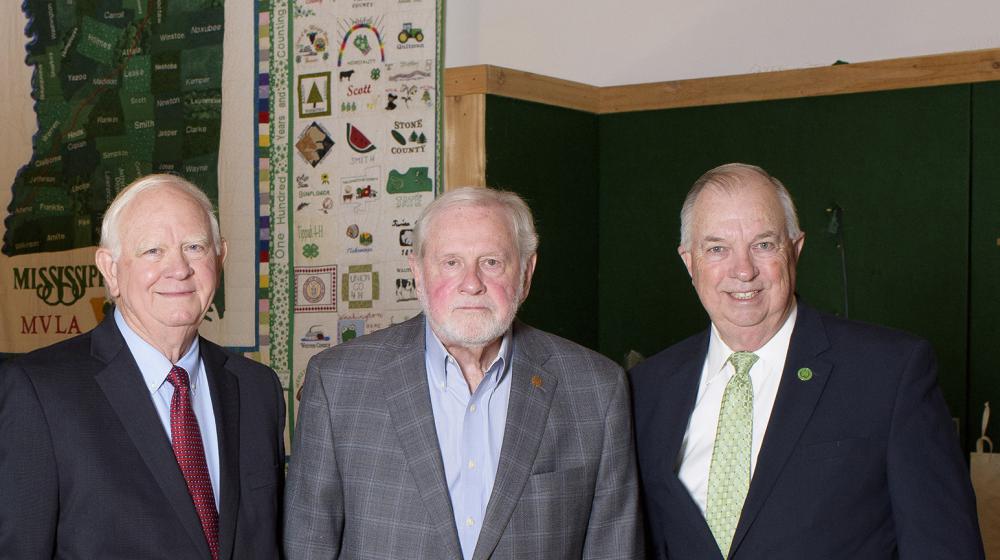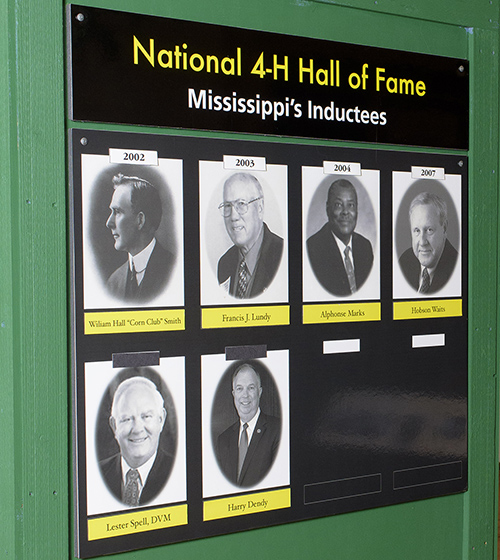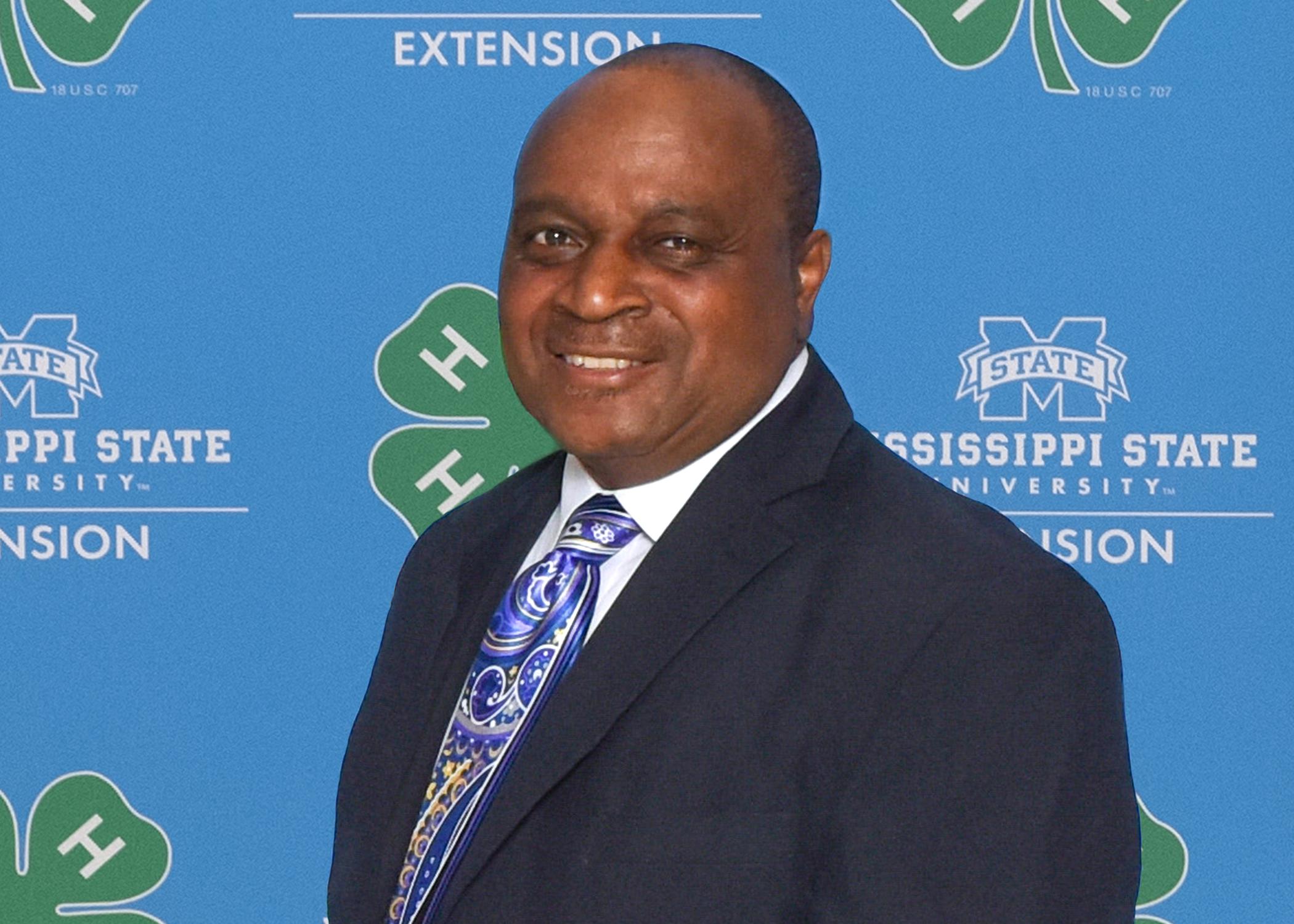National 4-H Hall of Fame Members

William Hall “Corn Club” Smith
Inducted in 2002
Smith is recognized as the father of 4-H in Mississippi because of his efforts to establish the first clubs for students in Holmes County in 1907. As the superintendent of Holmes County Schools, he wanted to improve farm education and keep boys in school. He, with the help of volunteer corn growers and teachers, established a school contest where the boys grew corn. Eighty-two boys participated in the first contest, in which contestants earned ribbons and prize money. Smith’s standardized and consistent educational program was valued and adopted by Mississippi State College and the U.S. Department of Agriculture, making Mississippi’s clubs the first to have the federal government’s support. Appointed by Seaman Knapp, Smith served as a USDA collaborator for the program.
Francis J. Lundy
Inducted in 2003
Lundy loved 4-H from childhood and was an active member of 4-H in Neshoba County. In 1935, he won the state 4-H Wood Chopping Contest and always cherished the trophy ax. A lifelong supporter of the organization, he served on the State 4-H Advisory Council and the 4-H Club Foundation of Mississippi for more than 20 years. Lundy was foundation chair for 11 years, during which time 4-H membership and foundation assets grew. He and his wife, Emma Nell Lundy, personally contributed to 4-H every year and set up a $50,000 endowment for leadership development. He also helped garner corporate and legislative support for 4-H. Lundy’s success was a direct result of his love for the program and its members, who sent him notes every year that he displayed on his refrigerator.

Alphonse Marks
Inducted in 2004
Marks was a dedicated Extension agent in Pike County for 30 years. He was one of the first African American Extension agents in Mississippi and took a lead role in integrating races in Extension. Although he delivered agriculture and community resource development education, he had a passion for 4-H and mentoring young people. Among many other awards, Marks received six Extension distinguished and meritorious awards from his peers, recognizing his leadership, work ethic, and people skills. After retirement in 1977, he remained involved with 4-H as a volunteer leader and served in district and state organizations. In honor of his dedication to 4-H, a wing of the Mississippi 4-H museum bears his name. Marks was a member of the Mississippi 4-H Advisory Council and was the first vice president of the 4-H Club Foundation of Mississippi.
Hobson Waits
Inducted in 2007
Waits, of Brandon, believes in the power of 4-H because he’s seen the impact it has had on many lives.
“I have always been amazed at the number of successful individuals in all walks of life who have credited the contributions of 4-H experiences in their lives,” he says.
As a volunteer club leader, Waits took numerous young people to the National 4-H Congress in Chicago annually. He raised money for the 4-H Cooperative Business Leadership Conference each year, attained 63 acres of investment property, and raised money to help 4-H programs and members affected by Hurricane Katrina. He served on the 4-H Foundation Board of Trustees and was a 35-year member of the Mississippi 4-H Advisory Council. He helped establish 4-H Legislative Day and the Mississippi 4-H Learning Center and Pete Frierson 4-H Museum.
Lester Spell
Inducted in 2010
Spell, of Richland, was an active 4-H’er who showed swine and dairy. As an adult, he has remained committed to 4-H and its young people.
“4-H gave me many opportunities and experiences that I would never have had otherwise. In my career, I have tried to repay that debt by supporting 4-H,” he says.
His support and philanthropy through the years includes serving 35 years on the Mississippi 4-H Advisory Council, helping secure ground for the Mississippi 4-H museum and learning center, and personally donating annually to 4-H at the local and state levels. During his years as state agriculture commissioner, Spell supported many 4-H events held at the Mississippi State Fair, including livestock and horse shows, the 4-H Village, and the Dixie National Sale of Junior Champions.
Harry Dendy
Inducted in 2011
Dendy, of Clinton, has been involved with 4-H for more than 60 years—first as a member in Chickasaw County and then as an advocate and supporter. During his career with Farm Credit, he led the company’s youth-supporting activities and was a regular contributor to 4-H. Dendy has served as president of the Mississippi 4-H Advisory Council and vice-chair of the Mississippi 4-H Foundation Board of Trustees. He is dedicated to the organization because he credits 4-H with helping make him who he is.
“As a young person, 4-H taught me leadership, gave me a chance to interact and be competitive with others, and instilled in me a certain degree of self-confidence,” he says.
Dendy raises funds for State 4-H Congress and the Dixie National Sale of Junior Champions and was instrumental in the creation of the Mississippi 4-H Learning Center and Pete Frierson 4-H Museum.

Harvey Lee Gordon, Sr.
Inducted in 2022
Harvey Lee Gordon, Sr., originally of Leland, Mississippi in Washington County, served as a 4-H state specialist with the Mississippi State University Extension Service from 1997 until he retired in 2014. A graduate of Alcorn State University, He came to the Mississippi 4-H youth development program from the University of Arkansas Cooperative Extension Service.
“Being a young black man growing up with limited resources in a small community called Black Dog and evolving to a Sunday school teacher and man of God, he saw the struggles of young people and he wanted to help them become better,” Gordon’s widow, Ruby Gordon said. “That is the theory behind 4-H, to make the best, better.”
Gordon died unexpectedly on May 27, 2021.
“When you see people in a struggle and you can educate them and open their eyes to positive opportunities, you do it,” Ruby Gordon said of her late husband of 41 years. “He always believed that if I can get you the information and you can digest that information, you can become a better person.”
Ruby Gordon said Harvey left a legacy of helping improve the lives of others, starting with his own three sons and extending to his three granddaughters.
“He was always such a humble person, and his whole being was intent on how he could help another person become a better person,” Ruby said. “The content of his character mattered more to him than any honor he might receive.”
Larry Alexander was an MSU Extension 4-H youth state specialist when Gordon joined MSU, and he described Gordon as a very energetic man who took his job seriously.
“He was all about trying to find the best in people,” Alexander said. “He motivated youth to step outside their comfort zones and do things they probably would not have done had he not coached them.”
In his years of working with Gordon, Alexander noted that Gordon never asked someone to do something or attempt something that he was not willing to do himself.
One of Gordon’s coworkers who has since retired said that Gordon was heavily and passionately involved in volunteer recruitment and training and the Mississippi 4-H Volunteer Leaders’ Association.
“He was loyal to the association. He was passionate about the volunteer leader’s association both in Arkansas and Mississippi, and he believed in the volunteers and that association,” said Rae Oldham, former state 4-H specialist. “How fortunate to do something where you have such a passion.”
Alexander echoed that sentiment, saying Gordon “got his satisfaction from seeing volunteers excel in working with young people.”
Alexander said the volunteer leaders’ association was small when Gordon arrived, but he grew it to a very large number of active and lifetime members and sound corporate sponsorships.
Debbie Carnathan was one volunteer 4-H leader who now lives in Chickasaw County. She has been treasurer of the Mississippi 4-H Volunteer Leaders’ Association for more than 20 years and has volunteered with 4-H for more than 40 years.
Harvey knew lots of people and called them by name, she said.
“He had a happy, joyful attitude about him, and it is very fitting that he should get this honor,” Carnathan said.
The National 4-H Hall of Fame ceremony will be held Oct. 7 in Washington, D.C. Gordon will be inducted as part of the Class of 2022. The goal of the honor is to recognize those who have had a significant impact on the 4-H program or a 4-H member through their contribution of time, energy, financial resources and more.
The last time someone from the Mississippi 4-H program was honored in this way was when Harry Dendy was named to the National 4-H Hall of Fame in 2011.
Linda Mitchell, interim head of the Mississippi Center for 4-H Youth Development, said Gordon was an exemplary example of the type of person found serving young people in 4-H.
“Harvey took the time to invest in each person -- to make them feel special, to let them know that what they did made a difference -- and by doing this, he left a legacy of positivity and teamwork with our volunteers, our youth and all who knew him,” Mitchell said.
Biographical information for the inductees was gathered from the National 4-H Hall of Fame website.